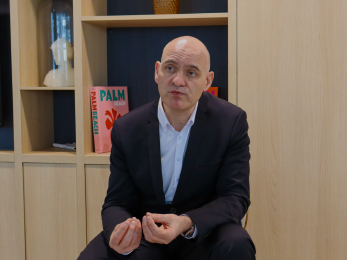JEMS gives an ecological and united end of life to its computers
Where and how to recycle your old computer for a company in IDF ? Several associations recover these devices – in working order or not – and recondition them. At JEMS, employees are encouraged to take initiatives to benefit associations.
Recycling: saving resources for the planet
Indeed, ecology is no longer a fad, and the issue of carbon footprint is at the heart of the debate. Did you know that the manufacturing of a laptop . Their extraction generally has disastrous effects on the environment as it requires a lot of energy, resources and water as well. In this case, we talk about “imported pollution*” since it often does not come from France. (*source: article Digital pollution: what is the carbon footprint of digital)
To give you an idea, the manufacture of a computer requires on average :
- 240kg of fossil fuels
- 22 kg of chemicals
- 1.5 tons of water.
In addition, the think-tank The Shift Project details in its July 2019 report that digital pollution accounts for 4% of global greenhouse gases. To give an order of magnitude, if the Internet were a country, it would be the world’s 3rd largest consumer of electricity, behind China and the United States.
There is a real energy disproportion where greenhouse gas emissions are concentrated especially during the first stages of a device’s life. For a smartphone, this can represent up to 90% of emissions! In 2020, JEMS has set itself commitments in terms of sustainable development through the implementation of a social responsibility strategy integrated into the company’s policy.
An association that facilitates social integration
The POLE S association echoes the values advocated by JEMS, its main mission is to initiate “French tech” in the heart of working-class neighborhoods at a time when the digital sector is hiring like crazy. The
Pole S association, which runs the Web school in Poissy (Yvelines), loaned about 15 laptops to families in the Beauregard and La Coudraie neighborhoods who needed them during the March 2020 lockdown.
Committed for more than 30 years in the fight against social exclusion, PoleS offers short and certifying training courses, it addresses to a public, all levels confused.
The pedagogy is based on peer-to-peer exchanges and practice, to better understand the basics and tools of the trade. It is held in person, in synchronous learning, and is accessible to people with disabilities. At the end of the training course, the trainees take the double professional certification delivered by WebForce3:
- Web integration techniques (CPF code 235494)
- Web development techniques (CPF code 236654)
75% of the trainees have obtained the double certification, and 80% at least one certification.
These trainees need to be hosted by companies during practical training for 2 months (not continuous 1 month and 1 month at the end of the training) out of 10 months; not easy for them to find companies to accompany them.
“Big changes come from little things.” Paul Coelho

Seida Ben Moussa – Project Director JEMS
About Seida Ben Moussa
Being a volunteer for several associations in her city, she was in contact with the person in charge of the association POLE S, Eric PRIVAT, in charge of socio-professional support, whom she met during an event in July 2021. He had mentioned that his association lacked computer equipment. Indeed, the association POLE S develops programs of insertion by the economic activity and actions of training around the digital in the heart of the districts. PoleS also offers short training courses and certification, and is aimed at a public, all levels. Its only leitmotiv: to make computing accessible to all!





